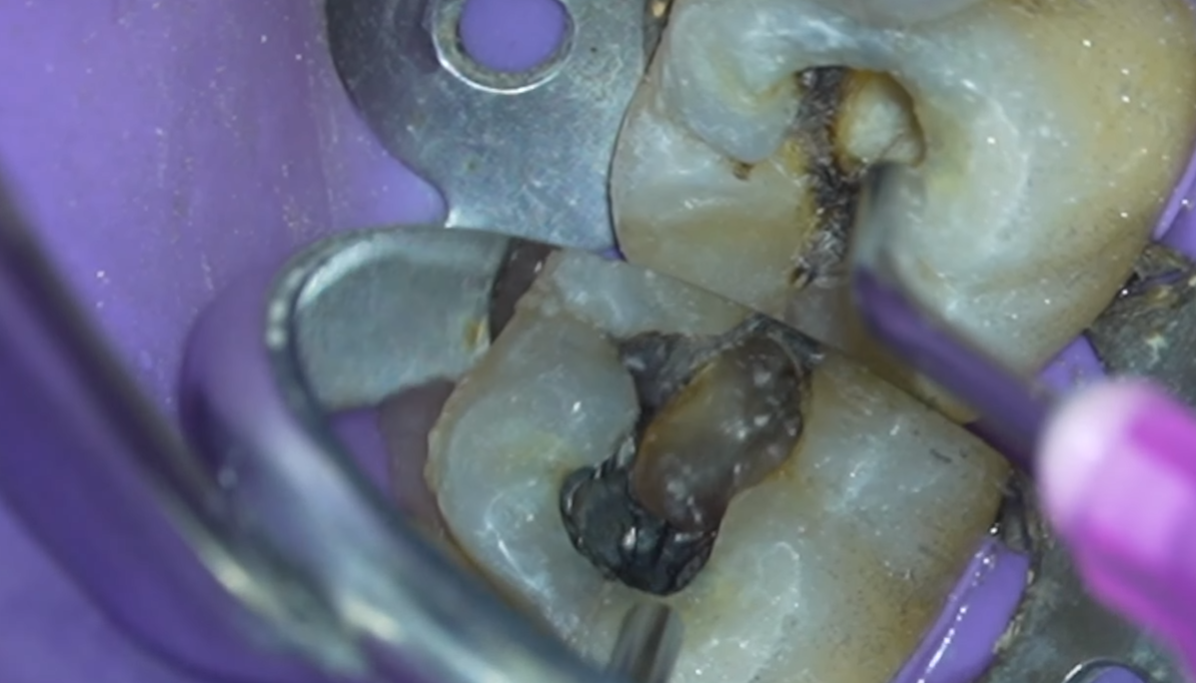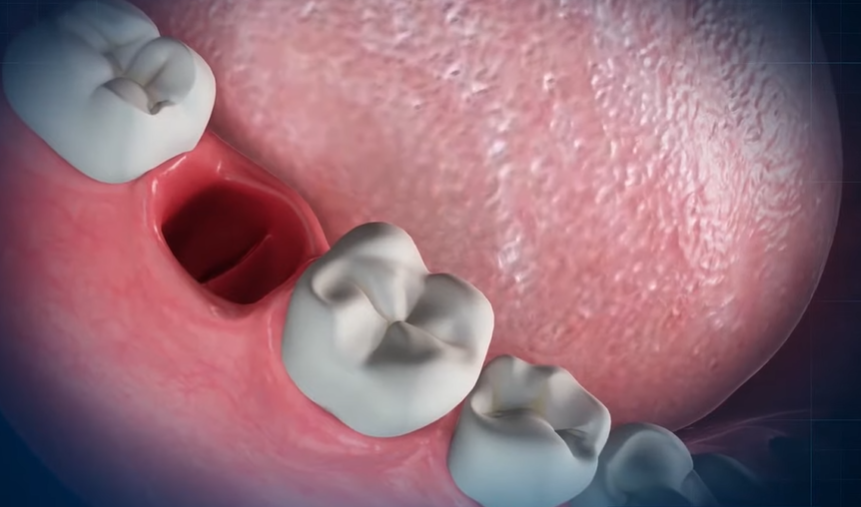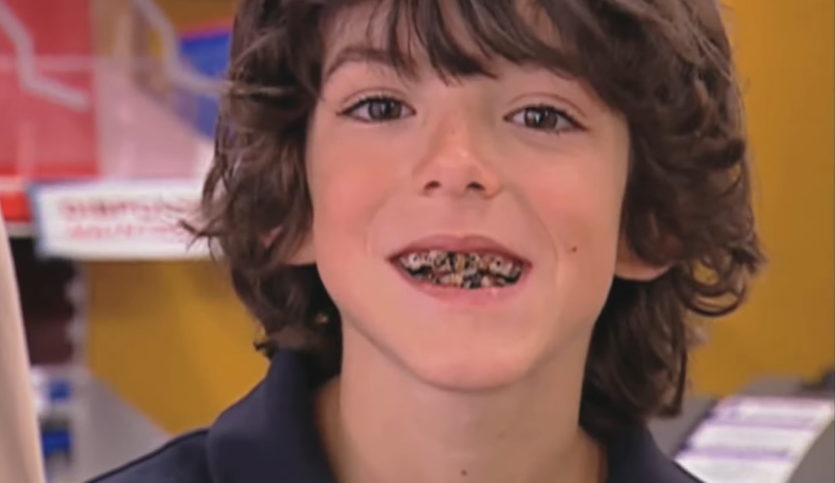If you buy through links on our site, we may earn a small affiliate commission to help support the blog - at no extra cost to you. It never influences our product selection process. Thank you!
Have you ever winced in pain when sipping cold water? Tooth pain when drinking water is a common yet troubling experience that can disrupt your daily life and indicate underlying dental issues.
This sudden sensitivity often occurs when nerves in your teeth are exposed to temperature changes, particularly cold liquids. Whether it’s a sign of worn enamel, a developing cavity, receding gums, or another dental condition, understanding the cause is the first step toward finding relief. In this text, we’ll explore why your teeth hurt when drinking water and what you can do about it.
Understanding Tooth Sensitivity to Cold Water
Tooth sensitivity to cold water occurs when the protective layers of your teeth become compromised, exposing the sensitive inner parts to temperature changes. Dentin, the layer beneath your enamel, contains thousands of microscopic tubules that connect directly to the nerve center (pulp) of your tooth. Cold water triggers these exposed nerves, sending a sharp, sudden pain signal to your brain.
What Causes Sensitivity to Cold Water?
Enamel erosion represents the primary culprit behind cold sensitivity. Your tooth enamel thins over time due to acidic foods, aggressive brushing techniques, or grinding habits. Receding gums expose the tooth roots which lack the protective enamel covering, making them particularly vulnerable to temperature changes. Dental cavities create pathways for cold sensations to reach nerve endings, while cracked teeth allow external stimuli direct access to the sensitive inner pulp.
Recent dental procedures often cause temporary sensitivity as your teeth adjust to treatments. Teeth whitening products containing peroxide-based agents temporarily dehydrate teeth, increasing sensitivity for 24-48 hours after application.
One of my patients, Sarah, experienced severe sensitivity after years of drinking lemon water every morning. “I couldn’t even sip room temperature water without wincing,” she told me. A thorough examination revealed important enamel erosion on her front teeth from the daily acid exposure.
How Nerve Stimulation Creates Pain
Cold water interacts with tooth nerves through a process called hydrodynamic conduction. When cold liquid contacts an exposed dentin tubule, it causes the fluid within these microscopic channels to contract rapidly. This fluid movement stimulates the nerve endings in your dental pulp, registering as pain in your brain.
Temperature changes as small as 10 degrees can trigger this response in sensitive teeth. Your teeth’s nerve fibers contain specialized receptors called thermoreceptors that specifically detect temperature changes and convert them into electrical signals. These signals travel through the trigeminal nerve—the fifth cranial nerve responsible for facial sensations—directly to your brain’s pain processing centers.
Common Causes of Tooth Pain When Drinking Water

Tooth pain when drinking water, especially cold water, often indicates dental sensitivity that can significantly impact your daily comfort. Several exact conditions commonly trigger this uncomfortable sensation when enjoying beverages.
Enamel Erosion and Exposed Dentin
Enamel erosion exposes the underlying dentin layer, creating pathways for temperature sensations to reach your tooth’s nerve center. Your tooth enamel acts as a protective shield, but once it wears down, the dentin—containing microscopic fluid-filled tubes connected directly to nerves—becomes vulnerable to external stimuli. Cold water causes these fluids to shift rapidly, triggering nerve responses that register as sharp pain. Many patients like Sarah, a 42-year-old teacher, discover their enamel has gradually thinned from years of consuming acidic beverages such as soda and citrus juices, leaving their teeth hypersensitive to temperature changes.
Cavities and Tooth Decay
Dental cavities create direct channels to your tooth’s sensitive inner structures, making cold water contact particularly painful. These decay-related openings in your tooth structure bypass the protective enamel layer, allowing temperature extremes to reach nerve endings more easily. Even minor cavities can produce intense, shooting pain when you drink cold water, often disappearing quickly once the stimulus is removed. Dr. Harris notes that many patients mistakenly dismiss these brief pains as normal, delaying treatment until the cavity has significantly progressed and requires more extensive intervention.
Gum Recession
Gum recession leaves tooth roots exposed and vulnerable to temperature sensitivity, particularly when drinking cold water. Unlike your tooth crown protected by enamel, roots are covered by cementum—a substantially thinner protective layer that erodes easily when exposed. Receding gums frequently result from aggressive brushing techniques, periodontal disease, or natural aging processes. Patients experiencing this condition typically describe a distinctive “zinging” sensation that radiates across multiple teeth when cold water touches the exposed root surfaces.
How to Diagnose the Source of Your Tooth Pain

Understanding the source of your tooth pain when drinking water helps determine appropriate treatment steps. Proper diagnosis involves both self-assessment techniques and knowing when professional dental care becomes necessary.
Self-Assessment Techniques
Identifying the characteristics of your tooth pain provides valuable clues about its underlying cause. Monitor the duration of sensitivity—pain lasting less than 15 seconds after drinking cold water typically indicates mild sensitivity rather than serious damage. Pay attention to the pain’s character; sharp, stabbing sensations often point to cavities or cracks, while dull, lingering discomfort may signal gum issues or early decay.
Examine your mouth for visible problems like gum recession, tooth cracks, or loose fillings. These conditions frequently expose sensitive tooth structures to temperature changes. Try gentle home care methods by switching to a soft-bristled toothbrush and using desensitizing toothpaste containing potassium nitrate or stannous fluoride. Limit brushing to twice daily to prevent additional enamel wear.
“One of my patients, Sarah, experienced sharp pain whenever she drank cold water,” notes Dr. Todd B. Harris. “Her self-assessment revealed the pain lasted only a few seconds and occurred mainly on one side. By examining her mouth in a mirror, she noticed a small crack in her molar, which we later confirmed during her appointment.”
When to See a Dentist
Professional dental evaluation becomes necessary when certain warning signs appear. Seek immediate dental care if sensitivity persists beyond a few seconds or gradually worsens over time. Intense pain accompanied by swelling or visible damage to the tooth requires prompt professional attention as these symptoms may indicate infection or important structural damage.
Contact your dentist if you detect cavities, broken teeth, or loose fillings during self-examination. These conditions expose vulnerable inner tooth structures and won’t resolve without professional intervention. Schedule an appointment when home remedies fail to alleviate symptoms after 2-3 weeks of consistent use.
Dental professionals employ specialized diagnostic tools beyond what’s available for home assessment. X-rays reveal hidden decay or structural issues, while detailed examinations identify subtle cracks invisible to the naked eye. Your dentist might use temperature testing or electrical pulp testing to pinpoint exactly which tooth is affected and determine the severity of the condition.
Treatment Options for Water-Induced Tooth Pain
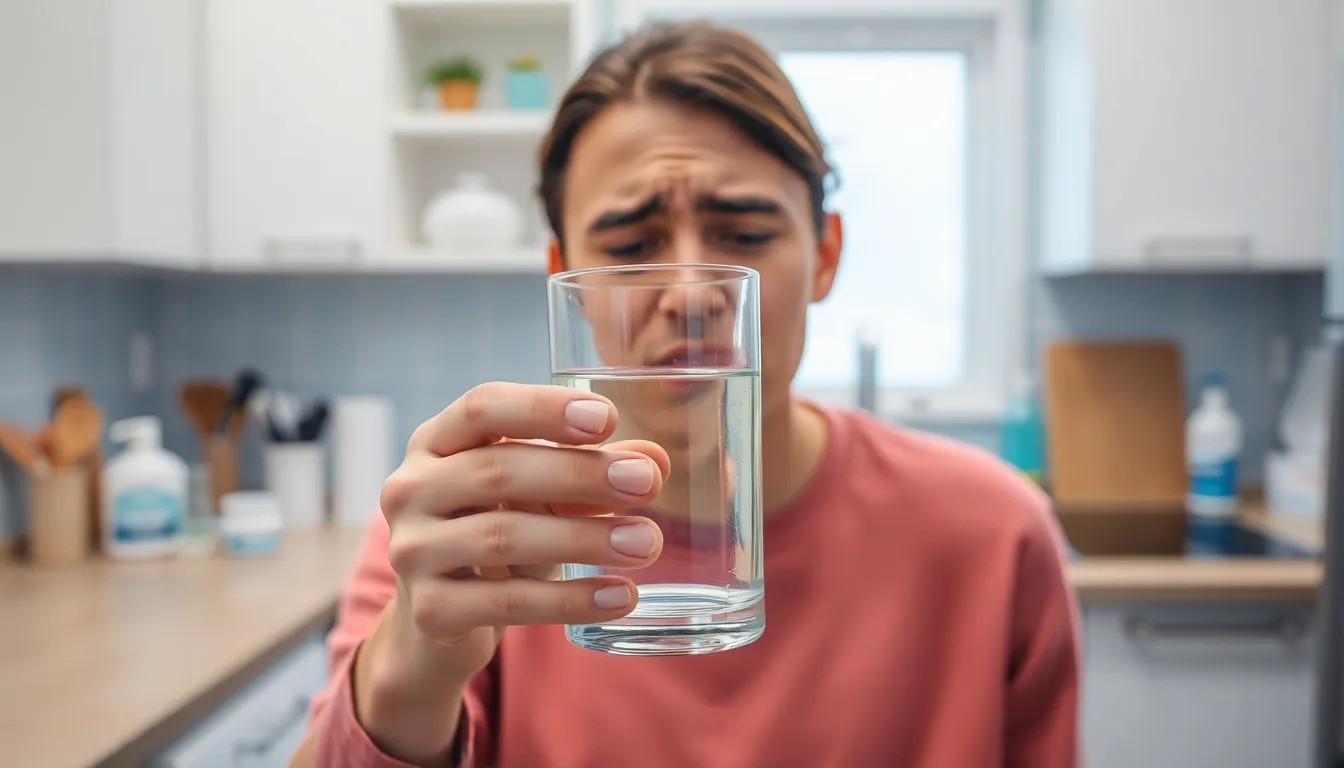
Tooth pain when drinking water can be effectively managed through various treatment approaches. Relief options range from simple at-home remedies to professional dental interventions depending on the underlying cause and severity of your symptoms.
Over-the-Counter Answers
Desensitizing toothpaste offers important relief for many people experiencing sensitivity to water. These specialized formulations contain compounds that block pain signals from the dentin to the nerve, reducing discomfort over time with regular use. Warm saltwater rinses provide a simple yet effective home remedy for mild tooth pain—mix ½ teaspoon of salt with 8 ounces of warm water, swish for 30 seconds, then spit out to reduce inflammation in the affected area. Applying ice packs to your jaw can help diminish pain and swelling by constricting blood vessels around the painful tooth. Using a straw when drinking water minimizes direct contact between the liquid and sensitive teeth, preventing the temperature shock that often triggers pain. Over-the-counter pain medications such as ibuprofen or paracetamol can temporarily alleviate discomfort while you arrange for proper dental care.
“I had terrible sensitivity to cold water for months and was avoiding drinking it altogether,” shares Jennifer, a patient of Dr. Todd B. Harris. “Starting with desensitizing toothpaste and using a straw for cold beverages gave me enough relief to function normally while we addressed the underlying enamel erosion.”
Professional Dental Treatments
Dental fillings or crowns restore teeth affected by decay or damage that’s causing sensitivity to water. Your dentist removes the decayed portion and reconstructs the tooth structure, protecting the sensitive inner layers from temperature changes. Root canal therapy becomes necessary when severe pain results from inflammation or infection inside the tooth pulp. This procedure involves removing the damaged nerve tissue, disinfecting the inner chambers, and sealing the tooth—typically followed by crown placement for protection. Gum grafts address sensitivity caused by receding gums by covering exposed tooth roots with tissue taken from another area of your mouth, effectively reducing pain and improving gum health. Treatment for gum disease includes professional cleaning and potentially medicated mouth rinses to reduce inflammation that contributes to sensitivity. Local anesthetic gels applied directly to sensitive areas provide temporary relief while awaiting more comprehensive treatment.
Prevention Strategies for Sensitive Teeth
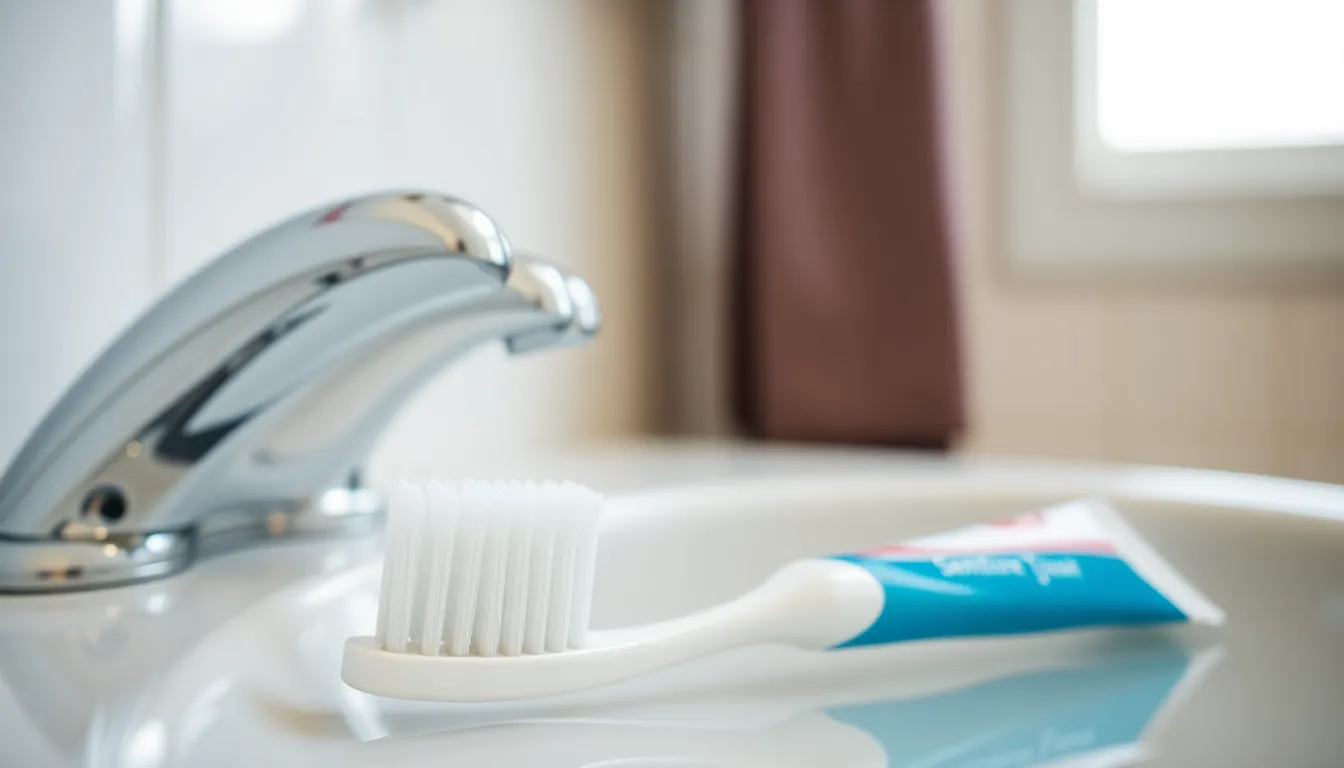
Preventing tooth sensitivity is more effective than treating it after the fact. These strategies can help reduce your discomfort when drinking water and protect your teeth from further damage.
Proper Oral Hygiene Practices
Maintaining proper oral hygiene forms the foundation of preventing sensitive teeth. Use a soft-bristled toothbrush to minimize enamel erosion, as aggressive brushing can wear down your protective enamel layer and irritate gums. Abrasive toothpastes can damage enamel over time, so opt for toothpaste specifically formulated for sensitive teeth.
Fluoride treatments or fluoride-containing toothpaste help strengthen your enamel and reduce sensitivity by creating a protective barrier over exposed dentin. Regular dental check-ups every six months allow your dentist to detect and treat issues like cavities or gum disease early, preventing them from developing into more serious conditions that contribute to sensitivity.
Dr. Todd B. Harris notes, “Many patients don’t realize they’re brushing too hard until I point out the telltale signs of enamel wear along their gumline. Switching to a soft-bristled brush and using gentle, circular motions can make a remarkable difference in just a few weeks.”
Dietary Adjustments
Your diet plays a crucial role in managing tooth sensitivity. Limit consumption of acidic foods and beverages such as coffee, tomato sauce, wine, and citrus fruits that gradually erode enamel and increase sensitivity. Drinking through a straw positions liquids toward the back of your mouth, reducing direct contact with sensitive teeth when consuming cold drinks.
Extremely hot or cold foods and drinks can trigger pain in sensitive teeth, so consuming them at moderate temperatures helps desensitize your teeth over time. After consuming acidic foods or beverages, rinse your mouth with water rather than brushing immediately, as brushing can damage enamel softened by acid.
Conclusion
Tooth pain when drinking water doesn’t have to be a permanent part of your life. With the right approach you can identify the root cause and find effective relief. Whether it’s using desensitizing toothpaste at home or seeking professional treatments like fillings or gum grafts your options are plentiful.
Remember that prevention plays a crucial role in maintaining comfortable oral health. Gentle brushing techniques proper diet choices and regular dental visits will help protect your teeth from sensitivity issues.
Don’t let tooth sensitivity control your daily habits or prevent you from enjoying cold beverages. Take action today by implementing the strategies outlined in this guide and consult your dentist if symptoms persist. Your path to pain-free sips starts with understanding and addressing the underlying causes.
Frequently Asked Questions
Why do my teeth hurt when I drink cold water?
Your teeth hurt when drinking cold water because the protective enamel may be worn down, exposing the sensitive dentin layer underneath. This allows temperature changes to reach nerve endings in your teeth. Common causes include enamel erosion from acidic foods or aggressive brushing, cavities, receding gums, recent dental work, or teeth whitening treatments.
Is tooth sensitivity to cold water a serious problem?
While occasional sensitivity isn’t usually serious, persistent pain when drinking cold water can indicate underlying dental issues that need attention. It might signal cavities, enamel erosion, gum recession, or cracked teeth. If the sensitivity lasts more than a few days, worsens over time, or is accompanied by other symptoms like swelling or throbbing pain, consult your dentist.
How can I treat sensitive teeth at home?
You can manage tooth sensitivity at home by using desensitizing toothpaste containing potassium nitrate or stannous fluoride. Warm salt water rinses can help reduce inflammation. Apply an ice pack to your cheek for pain relief. Take over-the-counter pain medications like ibuprofen as needed. Use a soft-bristled toothbrush and avoid extreme temperature foods and drinks until sensitivity improves.
What professional treatments are available for tooth sensitivity?
Professional treatments for tooth sensitivity include dental fillings for cavities, fluoride varnishes to strengthen enamel, dental bonding to cover exposed roots, and sealants to protect vulnerable areas. For severe cases, dentists may recommend root canal therapy, gum grafts for receding gums, or crowns to protect damaged teeth. Your dentist will recommend the appropriate treatment based on the underlying cause.
How can I prevent my teeth from becoming sensitive to cold water?
Prevent tooth sensitivity by brushing gently with a soft-bristled toothbrush and fluoride toothpaste. Avoid acidic foods and beverages when possible, and use a straw when drinking them to minimize contact with teeth. Don’t brush immediately after consuming acidic items. Wear a nightguard if you grind your teeth. Get regular dental check-ups every six months to catch and address potential issues early.
When should I see a dentist about tooth sensitivity?
See a dentist if your tooth sensitivity persists for more than a week, is severe enough to disrupt eating or drinking, worsens over time, or is accompanied by other symptoms like swelling, bleeding gums, or visible holes in teeth. Also consult a dentist if the pain remains after trying over-the-counter treatments, as this could indicate a more serious underlying condition requiring professional attention.


